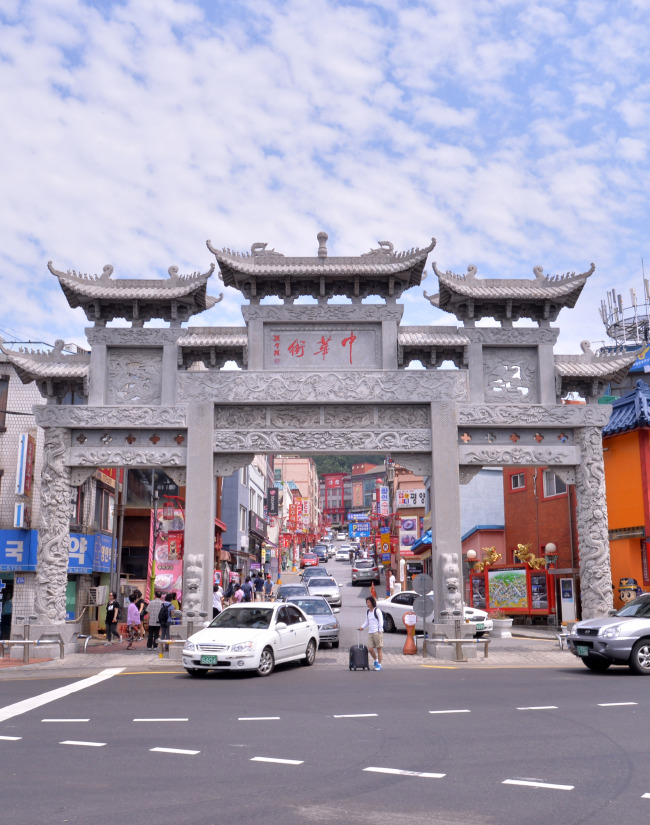[Weekender] China’s rising clout in Korea
Historical, cultural bonds undergird intensifying economic, diplomatic ties
By Shin Hyon-heePublished : Aug. 1, 2014 - 21:42
Around B.C. 300, a Chinese widow moved house three times in search of a better place to raise her son.
Living beside a cemetery, the child mimicked funeral rites. Near a marketplace, he imitated merchants. Then the mother settled on a house close to a school, where the boy was influenced by literati, soon perfected the Six Arts and became a Confucian sage.
Throughout history, the tale of the mother of Mencius has served as a model for devotion to education and strict parenting in neighboring Korea, which has had its own share of tigerish matriarchs who raised great scholars, politicians and artists against all odds.
Living beside a cemetery, the child mimicked funeral rites. Near a marketplace, he imitated merchants. Then the mother settled on a house close to a school, where the boy was influenced by literati, soon perfected the Six Arts and became a Confucian sage.
Throughout history, the tale of the mother of Mencius has served as a model for devotion to education and strict parenting in neighboring Korea, which has had its own share of tigerish matriarchs who raised great scholars, politicians and artists against all odds.

Korea and China have maintained a close relationship since 1992, when they reestablished diplomatic ties that had been severed after the Communists came to power in Beijing in 1949.
Historical and cultural bonds over two millennia underlie their ties, which are evolving into a more mature, substantive and multidimensional partnership based on their growing geopolitical and economic interdependence.
The improving ties are symbolized by the friendship between their current leaders, Park Geun-hye and Xi Jinping.
Since their inaugurations early last year, the two presidents have had five summits. Most recently in Seoul in July, they displayed a united front against a nuclear-armed North Korea and Japan’s lack of atonement for its wartime atrocities, including the sexual enslavement of Asian women at frontline military brothels.
Economic exchange is a vital part of Sino-South Korea relations. China is South Korea’s largest trading partner, with bilateral trade reaching $229 billion in 2013 ― more than South Korea’s combined trade with the U.S. and the European Union.
With a pool of China specialists being a must for conglomerates, nearly 1 million South Koreans were working in China last year. Seoul’s busiest shopping districts are brimming with Chinese tourists, while restaurant brands have been opening Chinese branches to tap into the world’s second-largest economy.
In line with the ever-deepening partnership, cultural and people-to-people exchanges are kicking into high gear.
Korea’s soft power, driven by the hallyu boom, is increasingly being coupled with China’s dominance in the global culture industry and surging financial firepower.
With China emerging as one of the biggest consumers of Korean pop culture, entertainment agencies have been grooming Chinese singers and actors and striving to improve their promotion and localization strategies.
Soaring numbers of students are also flocking to China to learn the language, study its customs and expand their job opportunities.
During their summit last month, Park and Xi agreed to reinvigorate the two countries’ cooperation in the fields of humanities, ease visa requirements and operate more youth programs, aiming to raise the annual number of travelers by a combined 10 million by 2016.
But the bilateral ties face uncertainty, with profound differences between the neighbors regarding an increasingly provocative North Korea and a regional security landscape that is changing along with China’s rise as a regional power and its deepening rivalry with the U.S.
Historical feuds also remain a source of contention as China attempts to glorify its history and achieve cultural hegemony to match its growing political and economic clout.
Korean sentiment has turned bitter in recent years as Beijing has increasingly asserted past sovereignty over ancient Korean kingdoms.
“Compared with Korea, China is historically very conscious about civilization as the cradle of one,” said Hong Seok-pyo, head of the Chinese culture research center at Ewha Womans University in Seoul.
“The country appears to be rethinking civilization and attempting to recapture its soft power, which was eclipsed by the West over the past 100 or so years, buoyed by its newfound economic and political security.”
By Shin Hyon-hee (heeshin@heraldcorp.com)



![[AtoZ into Korean mind] Humor in Korea: Navigating the line between what's funny and not](http://res.heraldm.com/phpwas/restmb_idxmake.php?idx=644&simg=/content/image/2024/04/22/20240422050642_0.jpg&u=)


![[Exclusive] Korean military set to ban iPhones over 'security' concerns](http://res.heraldm.com/phpwas/restmb_idxmake.php?idx=644&simg=/content/image/2024/04/23/20240423050599_0.jpg&u=20240423183955)
![[Herald Interview] Why Toss invited hackers to penetrate its system](http://res.heraldm.com/phpwas/restmb_idxmake.php?idx=644&simg=/content/image/2024/04/22/20240422050569_0.jpg&u=20240422150649)
![[Graphic News] 77% of young Koreans still financially dependent](http://res.heraldm.com/phpwas/restmb_idxmake.php?idx=644&simg=/content/image/2024/04/22/20240422050762_0.gif&u=)






![[Exclusive] Korean military to ban iPhones over security issues](http://res.heraldm.com/phpwas/restmb_idxmake.php?idx=652&simg=/content/image/2024/04/23/20240423050599_0.jpg&u=20240423183955)



![[Today’s K-pop] Ateez confirms US tour details](http://res.heraldm.com/phpwas/restmb_idxmake.php?idx=642&simg=/content/image/2024/04/23/20240423050700_0.jpg&u=)